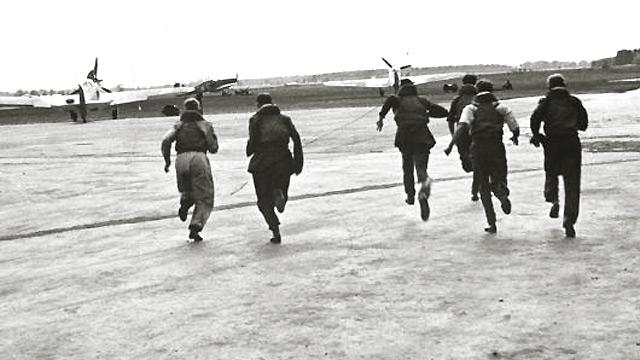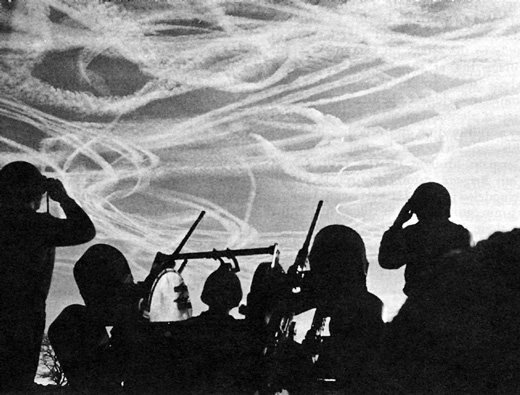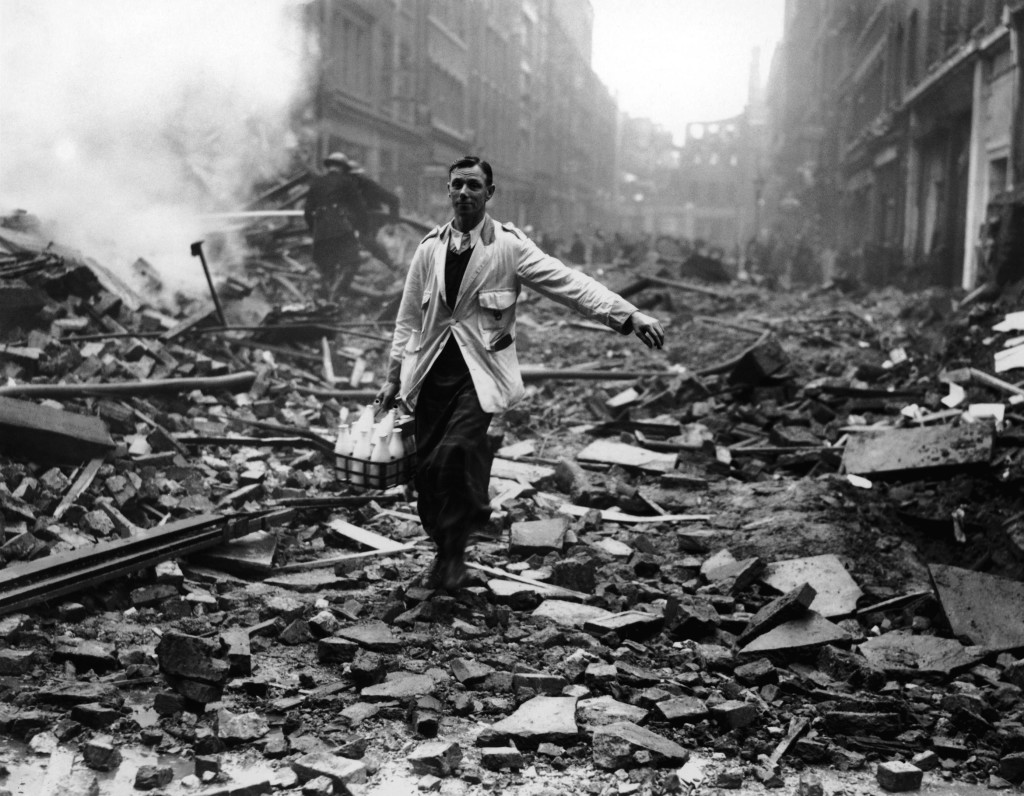
“What General Weygand has called The Battle of France is over. The battle of Britain is about to begin. Upon this battle depends the survival of Christian civilization Upon it depends our own British life and the long continuity of our institutions and our Empire. The whole fury and might of the enemy must very soon be turned on us. Hitler knows that he will have to break us in this island or lose the war. If we can stand up to him, all Europe may be free and the life of the world may move forward into broad, sunlit uplands. But if we fail, then the whole world, including the United States, including all that we have known and cared for, will sink into the abyss of a new Dark Age made more sinister, and perhaps more protracted, by the lights of a perverted science. Let us therefore brace ourselves to our duties, and so bear ourselves that, if the British Empire and its Commonwealth last for a thousand years, men will still say, ‘This was their finest hour'”
Winston Churchill June 18, 1940
75 years ago this month, in a September 17th meeting with his military staff, Adolf Hitler, the dictator of Germany and the conqueror of continental Europe, heard the disparaging news that his air forces were not going to be able to sustain mounting losses and still hope to support a cross channel invasion of Great Britain. Three days later, unbeknownst to the British, who had months of horrific losses ahead of them in nighttime bombing later referred to as the Blitz, Hitler effectively suspended the initiation of the cross channel invasion, Operation Sea Lion, and in doing so, changed the outcome of history. The battle of which Churchill so eloquently spoke of just three short months before, had turned back the greatest war machine ever known through the savvy, will, and courage of perhaps the fewest people one could imagine. 75 years later, it looks like no less a miracle, and ever more important, as we are currently called to summon our will again to combat a marauding evil.
When Churchill spoke to the House of Commons in June 1940, he saw a world where his Britain was the last remaining obstacle to securing Hitler’s stunning successful conquest of the European land mass and the subjugation of the cultures that had determined western civilization for the past five hundred years. The challenge looked immense, if not hopeless, to most, including members of his inner circle. The United States, Churchill’s hoped for ally that might turn the tide, had no inclination to get involved in a trans ocean struggle and was nowhere near ready to do so, if it had so inclined. The United States Ambassador Joseph Kennedy saw in the British a dying empire with no hope of stopping Hitler, and recommended no American support. The Germans as recently as May had gone through the French million man army in a mere six weeks, and the British had narrowly escaped with the remnants of their forces at Dunkirk in a hastily produced withdrawal that was a victory only in avoiding disastrous capture or destruction of the entire British expeditionary army. The Soviet Union has earlier made its own pact with Hitler and swept into eastern Poland and Finland, to secure its own land grab, giving Hitler the ability to focus full attention on Britain.
Full attention meant the world’s largest war machine pointed at the nation that had just had it handed to it over the preceding 6 months in Norway, and then France. The only hope lay in the difficulties of achieving a cross channel invasion. This had not been successfully achieved (without invitation) since 1066, when William the Conqueror defeated Harold at the Battle of Hastings, and William had not had to worry about battleships or airplanes during the crossing. The Germans initiated the preamble to Sea Lion in July, 1940 , with a massive daily air attack to destroy Britain’s capacity for defense, with the plan’s logic the destruction of the British Royal Air Force, and with it, the last chance to fend off a cross channel invasion fleet. And so history was joined to the destinies of individual pilots, the German contingent looking to attack, the British looking to eliminate, in a deadly battle of attrition that bound one to exhaust the fighting capacity of the other. Planes as machinery were difficult to replace, but pilots – able pilots were irreplaceable. The destiny of a several hundred thousand man invasion force therefore lay in the hands of several thousand trained pilots on each side, capable of the skills and experience required to marshall the maneuvers of a modern aircraft. Each day a massive bombing force from the continent looked to destroy British will, and each time a group of intrepid fighter pilots in Hurricanes and Spitfires looked to drive the Germans into the sea.

The battle was every bit about individual courage, but it was also about revolutionary tactics. The Germans were late to the understanding of the significance of radar and a sophisticated forward spotting network. The British airmen did not have the ability to be everywhere, but sophisticated tracking allowed the concept of force magnification by getting fighters from far afield to the appropriate intercept point with uncanny accuracy. The Germans had somewhat more powerful aircraft in straight line speed, but poor fuel capacity to the extent that for the escort fighters, only about ten minutes of dog fight capacity was present before the fighters had to turn to home across the channel, leaving the bombers exposed. The german bombers were instructed to destroy the airfields and planes initially, a task that proved difficult given the ferocity of the resistance and the accuracy of bombing at the time, That left British industrial capacity for the most part untouched, allowing the capable replacement of the air machinery above loss rate. Eventually, the German losses mounted and the raids turned to night bombing of civilian areas, bringing horrific casualties on the ground in the tens of thousands.

By mid-October, though the ferocity of the bombing was nowhere near done and the Blitz continued until May 1941, when Hitler re-directed his assets east toward Russia, The idea of a successful cross channel invasion was scrapped by the Germans. The Battle of Britain had resulted in the loss of over 1600 German piloted aircraft, compared to 1400 RAF. More importantly, it removed the word inevitable to describe the German war machine and proved a democratic people could develop the powerful martial instincts necessary to combat a remorseless leviathan. As Churchill was to say in words that have become immortal regarding the Battle of Britain participants : “Never in the field of human conflict was so much owed by so many to so few.” In a war that may have resulted in as much as 25 million military deaths, the sacrifice of less than two thousand airmen may have changed the entire course of the war, and history itself.
75 years is such a time period, that the few that lived through the moment are in no position to teach the current generation of the necessity at times to defend one’s civilization. No invasion took place of the British Isles, because a determined population believed their view of civilization was worth fighting for, no matter what the odds, and potentially at total cost. Surrender of a way of life and tradition of respect for others was thought less worthy than the loss of one’s life for the chance of preserving such principles. Mr. Morley, the milkman in the photo above, saw the surrounding devastation as an obstacle to overcome in his call to preserve a civilized society, not a sign that self preservation was called for. Delivering milk to people who needed it, is what was done in a civilized society, and to stop, would to suggest the barbarians had won. And that, was unthinkable. Civilization once again proved itself to be a bottom-up phenomena, barbarism top down. The shadows of such distant history show us today that our civilization’s decline will occur only if we as individuals stop caring about our role in civility. The island of Britain, all alone, against indescribable odds, showed what one could do, if civilization was your cause. We again to look to Churchill whose words resonate for those of us who see the immensity of the task ahead of us in a time where surrender is all around us – ” You must just KBO!”
Keep Buggering On.